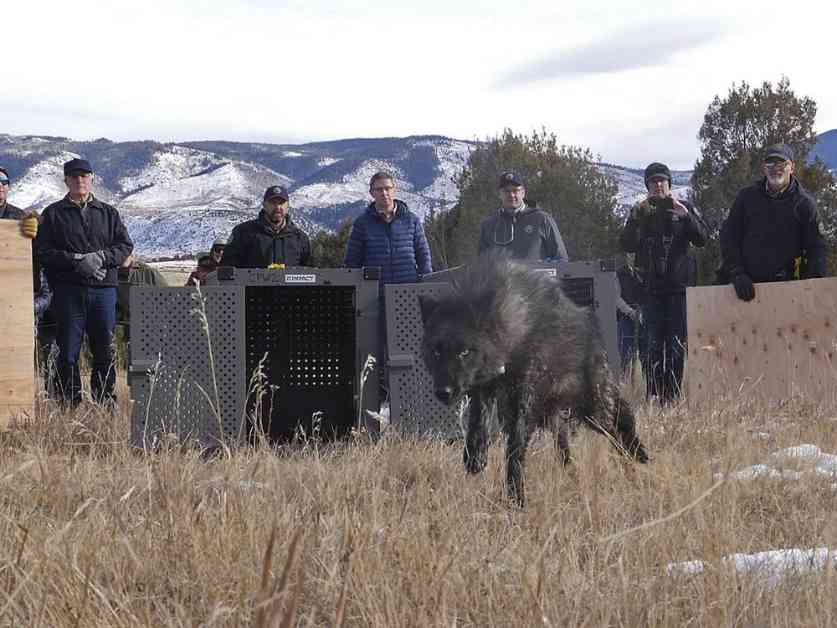In a recent development in Colorado, a wolf pack that has been blamed for multiple livestock attacks has been captured by wildlife officials. The pack, known as the Copper Creek pack, consists of five members that are set to be relocated as a result of their involvement in attacks on cattle and sheep in Grant County.
The capture of the wolves marks a setback in Colorado’s wolf reintroduction program, which aims to restore the predator population that was eradicated from the state decades ago. The initiative, which was driven by voters, faced opposition from livestock groups when 10 wolves from Oregon were released in December.
Unfortunately, one of the captured wolves, the adult male of the pack, died due to injuries unrelated to the capture. This wolf had been involved in repeated attacks on livestock and would have been kept in captivity if it had survived. The decision to capture and relocate the pack was made in order to prevent further livestock attacks and to ensure the safety of the animals.
The plan to relocate the Copper Creek pack goes against Colorado’s wolf management plan, which states that relocation has “little technical merit” and could potentially create problems elsewhere if the animals continue to attack livestock. The plan emphasizes the use of non-lethal approaches, such as patrolling ranches with range riders and scaring away problem wolves, or in extreme cases, killing them to stop ongoing attacks on livestock.
Despite calls from ranching groups to have the wolf pack killed, state officials decided against it, as it would have been a major setback for the wolf restoration effort. Instead, they opted to relocate the female and four pups of the pack, taking into consideration the pups’ chances of survival in the wild and the overall goal of restoring the wolf population in Colorado.
Moving forward, a decision is pending on where the remainder of the pack will be released. This will occur once the pups are larger and able to hunt on their own. Ranching groups remain skeptical of the relocation, stating that the problem will only be shifted to a different location in the future. However, wildlife advocates argue that more should be done to prevent livestock attacks, such as implementing electric fencing to deter wolf attacks effectively.
In conclusion, the capture and relocation of the Copper Creek wolf pack in Colorado highlights the challenges and complexities of managing wildlife populations in areas where conflicts with human activities, such as livestock farming, arise. While the decision to relocate the pack was made to protect both the wolves and the livestock, it underscores the need for effective management strategies that balance the needs of wildlife conservation with the concerns of local communities.






















